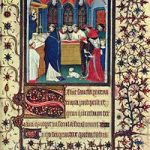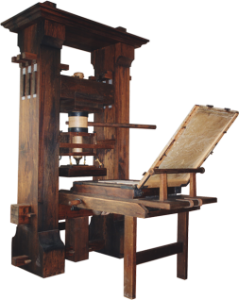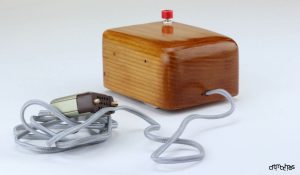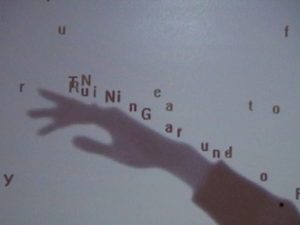Welcome
Welcome to DTC 375 Language, Texts, and Technology. The course explores “the relationship between technology and communication; writing practices from a historical point of view” (WSU Catalog). Since it is a Core 1 requirement for the DTC major, it is understood in this context that these three concepts focuses on digital language, digital-based texts, and digital technology and the way they differ from orality and print.The course is divided into two major sections: 1) Language and Text, and 2) Key Concepts.
Below is the course schedule. In the menu or here you will find the course requirements. On the left sidebar you will find the professor’s contact information and downloads for all of the handouts for this course.
Part 1: Background on Language, Texts, and Technology
Week 1: Getting Organized
T, August 20: Introduction to the course. Download Activity from site: 375-1.1
TH, August 22: Getting setup and familiar with Liquid, Scalar, and WordPress
–>Homework due next Tuesday: Read FPTH, pp. 1-21. There will be a pop test on this reading (Pop Text #1) next Tuesday
 Week 2: Language & Text
Week 2: Language & Text
T, August 27: Pop test #1 over pp. 5-21; discuss FPTH, pp. 5-21; review “Medium Charts,” http://nouspace.net/dene/375/mediums-chart.jpg; see Roman inscription, https://www.metmuseum.org/art/collection/search/251376
–>Homework due Thursday: Activity 375-2.2 (Counts as Pop Test #2) due on Thursday
TH, August 29: Language and Writing Systems Activity; see handout; presentation on the Creative Commons
–>Homework due next Tuesday: Activity 375-2.2 due and in class (Counts as Pop Test #2) Read FPTH, pp. 22-39 & RIC 17-26. There will be a pop test on these two readings (Pop Text #3)
Week 3: Writing Culture
T, September 3: Pop Test #3 (over FPTH, pp. 22-39 & RIC 17-26); discuss readings; view slide show with video in class; presentation on Google Scholar
–>Homework due Thursday: Read FPTH, pp. 40-58
TH, September 5: Discuss FPTH, pp. 40-58; view Kac’s Inner Telescope
–>Homework due next Tuesday: Read RIC, pp. 27-66. There will be a pop test on this reading (Pop Text #4)
Week 4: Print Culture
T, September 10: Pop Test #4 over RIC, pp. 27-66; discuss reading and handout 375-4.1; view slide show book-lecture; download and read, “List of Firsts”
–>Homework due Thursday: Read RIC, pp. 105-138 There will be a pop test on this reading (Pop Text #5)
TH, September 12: Pop Text #5 over RIC, pp. 105-138; discuss reading; discuss group publication
Week 5: Work on Your Group Publication
T, September 17: Work on group publication
TH, September 19: Work on group publication
–>Homework due next Tuesday: Read RIC, pp. 343-375. There will be a pop test on this reading (Pop Text #6)
Week 6: Digital Texts & Hypertext
T, September 24: Pop Test #6 over RIC, pp. 343-375; discuss reading
–>Homework due Thursday: FPTH, pp.70-86
TH, September 25: Demonstration of hypertext; group reading of a hypertext; discuss reading
Week 7: Mid-Term
T, October 1: Work on group publication
TH, October 3: Presentation of group publications
–>Homework due next Tuesday: View the following videos on Khan Academy: 1) How Computers Work, https://www.khanacademy.org/computing/computer-science/how-computers-work2/v/khan-academy-and-codeorg-what-makes-a-computer-a-computer; 2) Binary and Data, https://www.khanacademy.org/computing/computer-science/how-computers-work2/v/khan-academy-and-codeorg-binary-data; 3) Circuits and Logic, https://www.khanacademy.org/computing/computer-science/how-computers-work2/v/khan-academy-and-codeorg-circuits-logic, 4) CPU, Memory, Input, Output, https://www.khanacademy.org/computing/computer-science/how-computers-work2/v/khan-academy-and-codeorg-cpu-memory-input-output; 5) Hardware & Software, https://www.khanacademy.org/computing/computer-science/how-computers-work2/v/khan-academy-and-codeorg-hardware-and-software
Part 2: Key Concepts about Digital Culture
Week 8: Being Digital
T, October 8: Review information from video with slide show, 375-8.1 “digitality”
 TH, October 10: Hands-on experience with Arduino
TH, October 10: Hands-on experience with Arduino
–>Homework due next Tuesday: Read about and view videos about Douglas Engelbart: http://www.dougengelbart.org/content/view/209/448/ and http://www.dougengelbart.org/content/view/209/448/; view video of Ted Nelson talking about Xanadu and hypertext, https://www.youtube.com/watch?v=hMKy52Intac; view video of Tim Berners-Lee, https://www.washingtonpost.com/video/postlive/sir-tim-berners-lee-on-how-he-came-up-with-the-world-wide-web-and-why-your-kids-should-code/2019/03/05/13e0a62a-bcc7-423f-987d-788b8497696a_video.html; download and look over handout, “Cultural Upheavals.” There will be a pop test on this reading (Pop Text #7)
Week 9: Innovations, Part 1: What Has Occurred
T, October 15: Discuss videos and handout; pop test #7
TH, October 17: Since I have already introduced Twine early in the semester, today we will instead experience a toolset for creating games and animations for the Playstation 4, called Dreams.
–>Homework due next Tuesday: Read FPTH, pp. 97-104, 108-118, 125-128. There will be a pop test on this reading (Pop Text #8)
Friday, October 18: The Electronic Literature Lab is hosting a performance of Eric Steinhart’s hypertext Fragments of a Dionysian Body, by Visiting Scholar, Anna Nacher, from Krakow, Poland. 12 noon-1:30 p.m. VCLS 3. Students who attend this event can add 10 points to Pop Test #8.
Week 10: Reading
T, October 22: Pop Test #8 over FPTH, pp. 108-128; discuss readings
TH, October 24: Reading born digital texts: visit “Samsung,” https://www.yhchang.com/SAMSUNG_V.html; “RedRidingHood,” http://collection.eliterature.org/1/works/leishman__redridinghood.html, “Into the White Darkness,” http://nonfinito.de/ii/; “Projects for Mobile Phones,” http://beehive.temporal image.com/content_apps33/Sondheim/0.html; “Grammatron,” https://www.grammatron.com
–>Homework due next Tuesday: Read FPTH, pp. 129-135. There will be a pop test on this reading (Pop Text #9)
Week 11 Interactivity
T, October 29: Pop Test #9 over FPTH, pp. 129-135; view “Text Rain,” http://camilleutterback.com/projects/text-rain/; “Screen,” http://www.noahwf.com/screen/; “Body Movies,” http://www.lozano-hemmer.com/body_movies.php; “Hobo Lobo of Hamelin,” http://hobolobo.net
–>Homework due Thursday” Read FPTH, pp. 149-166
TH, October 31; Discuss FPTH, pp. 149-166
–>Homework due next Tuesday: Read RIC, pp. 375-404. There will be a pop test on this reading (Pop #10)
Week 12: Social Networks and Participatory Culture
T, November 5: Pop Test #10 over RIC, pp. 375-404; discuss readings; introduction to NetProv and Twitterature. See Mark Marino’s OccupyMLA, Netprov at ELMCIP, Twitterature on Wikipedia, The 24-Hour Micro-Elit Project, ELIZA
TH, November 7: Class Social Media Performance or Group Activity
–>Homework due next Tuesday: View videos “Fake Videos of Real People,” https://www.ted.com/talks/supasorn_suwajanakorn_fake_videos_of_real_people_and_how_to_spot_them?language=en; “How AR Is Changing Activism,” https://www.youtube.com/watch?v=ORW5MNCv_LU; “Wearable Tech That Helps You Navigate by Touch,” https://www.youtube.com/watch?v=xnQB9Y77PXE
Friday, November 8: The Electronic Literature Lab is hosting a performance of Megan Heyward’s hypertext narrative Of Day Of Night, by the author who is visiting from Sydney, Australia. 12 noon-1:30 p.m. VCLS 3. Students who attend this event can add 10 points to Pop Test #10.
Week 13: Innovations, Part 2: What May Occur
T, November 12: Discuss videos
–>Homework due Thursday: See Activity 13.1 (This Activity counts as Pop Test #11)
TH, November 14: We will spend the class talking through your responses to Activity 13.1 (counts at Pop Test #11)
T, November 19: Work on project
TH, November 21: Work on project
Week 14: Thanksgiving
Week 15:Projects
T, November 26: Work on project
TH, November 28: Work on project
Week 16: Projects
T, December 3: Presentations
Th, December 5: Presentations
